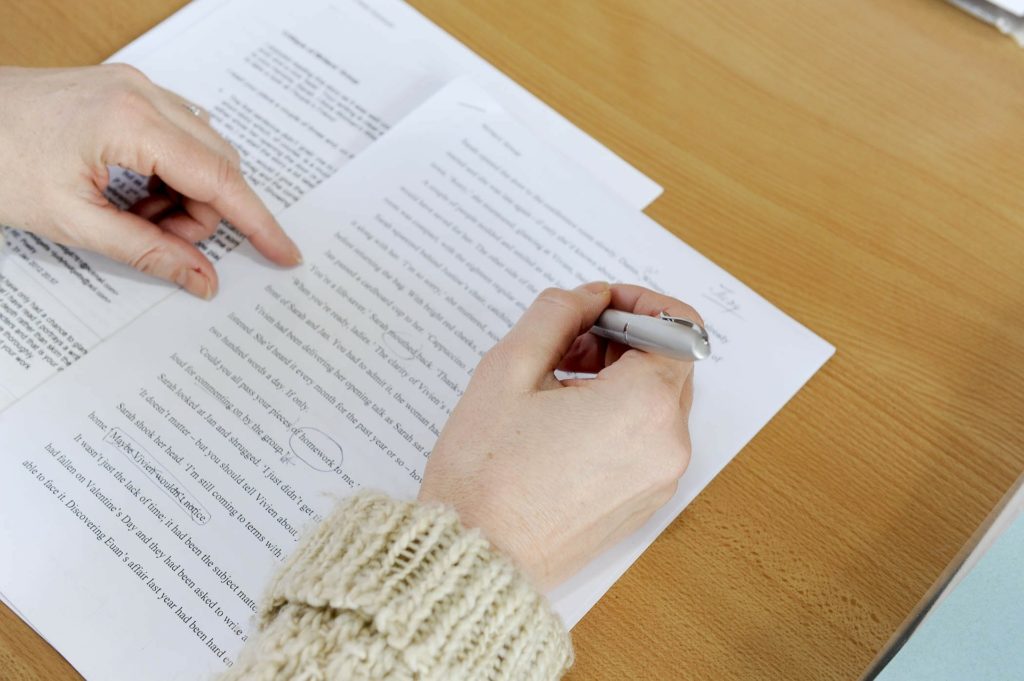
Every writer dreams of seeing their book published, but few realize that the true magic happens during the editing process. While the writing phase is crucial for telling a compelling story, it's the editing phase that ensures your book is clear, polished, and ready for the market. Whether you're a first-time author or a seasoned writer, finding the best book editors for hire can significantly elevate your manuscript.
Why Editing Matters for Your Manuscript
Editing is more than just correcting grammar and spelling mistakes; it’s about refining your narrative and ensuring that your message resonates with your audience. An experienced editor helps sharpen the structure, pacing, and flow of the story, ensuring that the reader remains engaged from start to finish. In addition to enhancing clarity and readability, a professional editor can identify plot inconsistencies, character development flaws, and even style mismatches. The process transforms your raw manuscript into a polished, coherent work ready for publication.
Best Book Editors for Hire: Your Key to Success
Finding the best book editors for hire is crucial to taking your manuscript to the next level. These experts can provide invaluable insight and make suggestions that improve the overall quality of your writing. But how do you know you're choosing the right editor for your book?
First, you should focus on finding the Best book editors for hire who understand your genre and writing style. Whether you’re working on a novel, nonfiction work, or memoir, editors specializing in specific genres can offer more relevant feedback. Their knowledge of the conventions and expectations of the genre will help ensure your manuscript is well-received by both publishers and readers. Additionally, look for editors with a solid track record, positive reviews, and a clear editing process that aligns with your goals.
Types of Book Editing Services
Several types of editing services cater to different stages of your writing process. Knowing the distinctions between them can help you determine what’s best for your manuscript.
- Developmental Editing
This type of editing focuses on the big picture—structure, plot, character arcs, and pacing. It’s perfect for authors who are still fine-tuning the core elements of their story and need comprehensive feedback. Developmental editors work closely with authors to ensure the narrative flows logically and the characters are well-developed. - Line Editing
Line editing dives deeper into the details of the prose. This type of editing works to enhance sentence structure, word choice, and overall writing style, making the text more fluid and engaging. Line editing is typically done after developmental editing. - Copyediting
Copyediting is the process of correcting grammar, punctuation, and spelling errors while ensuring consistency in style and tone. This is essential for authors who have completed their manuscripts but want to eliminate distractions and improve readability before moving to proofreading. - Proofreading
Proofreading is the final stage of editing. This step ensures that there are no lingering errors in grammar, punctuation, or spelling before the manuscript is submitted for publication. It’s the last check for typographical and formatting mistakes that may have slipped through the cracks.
How to Choose the Best Book Editor for Your Project
Choosing the right editor can be a daunting task, but it’s essential for ensuring the success of your manuscript. Start by looking for editors with experience in your genre, as they will be able to provide tailored advice and understand industry-specific requirements. Also, consider the editor’s portfolio or samples of previous work to assess their style and quality.
It's also helpful to ask for referrals from other authors or writing communities. Recommendations can provide valuable insight into the editor's ability to collaborate and communicate effectively. Lastly, ensure that the editor’s fees align with your budget and that they can meet your timeline expectations.
Questions to Ask Potential Editors
Before signing a contract with an editor, it's important to have a conversation to gauge if they are the right fit for your book. Here are a few questions to ask:
- What’s your experience in editing books of this genre?
- Can you provide references or testimonials from past clients?
- What’s your process, and how long does it typically take?
- What is your pricing structure, and what does it cover?
- How do you prefer to communicate with authors during the editing process?
By addressing these questions, you ensure that both you and the editor have clear expectations, which will make the process more seamless.
The Editing Process: What to Expect
Once you’ve selected an editor, the editing process can begin. Initially, you will submit your manuscript and have a consultation with the editor to discuss your goals for the project. The editor will then assess the manuscript, provide an estimate of the editing timeline, and begin work on the first round of edits. After you receive the feedback, you’ll collaborate with the editor to refine your manuscript further. Expect a series of back-and-forth revisions before reaching the final draft.
Throughout this process, be open to feedback and ready to make changes to improve the manuscript. Professional editors are there to help, but ultimately, the manuscript should reflect your vision while adhering to best practices.
Final Thoughts
The journey to becoming a successful author is challenging, but with the right resources, you can achieve your writing goals. One of the best investments you can make is hiring an experienced editor to refine your work. With the best book editors for hire, your manuscript can undergo the transformation it needs to reach its full potential. Take the time to choose the right editor for your project, and you’ll be well on your way to achieving your publishing dreams.